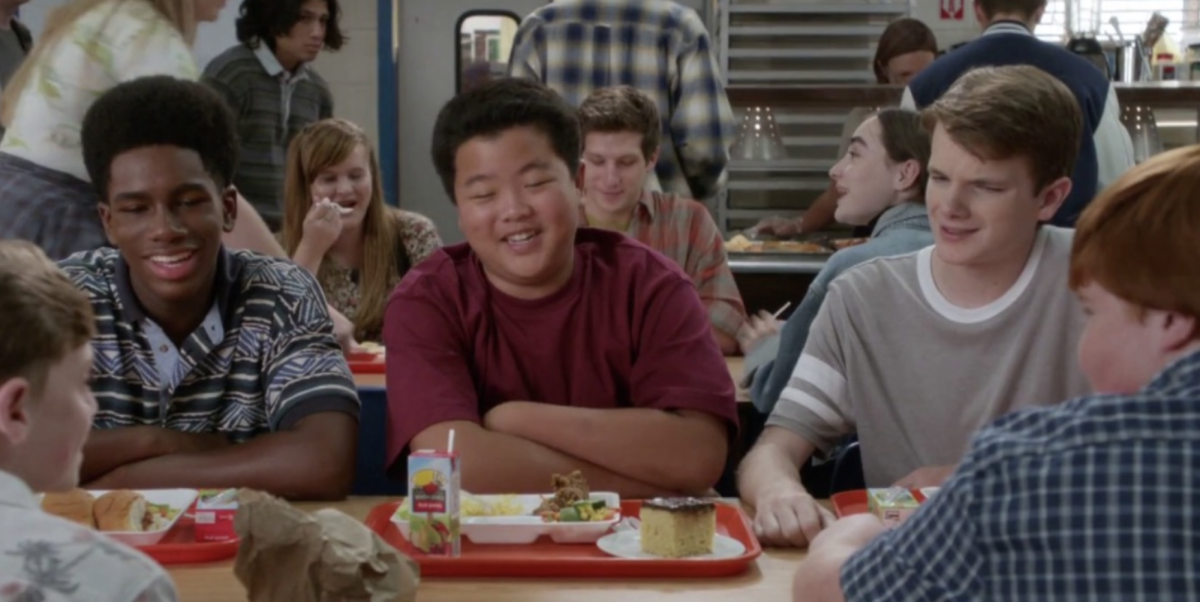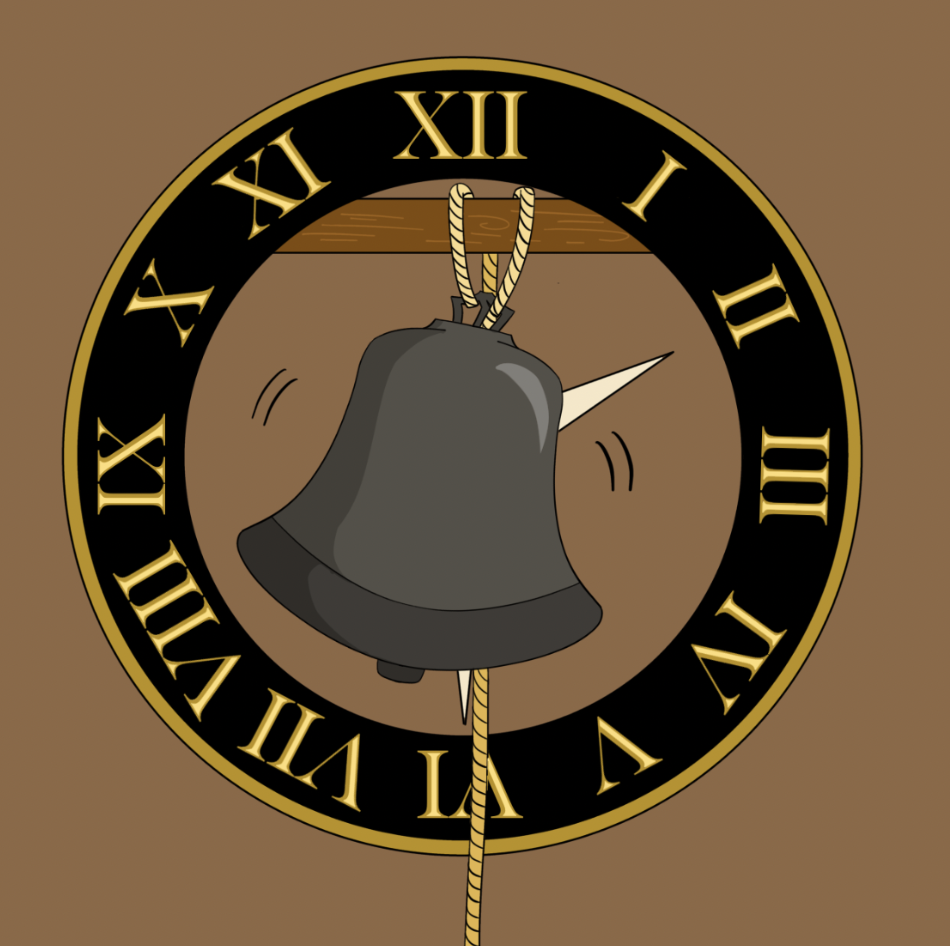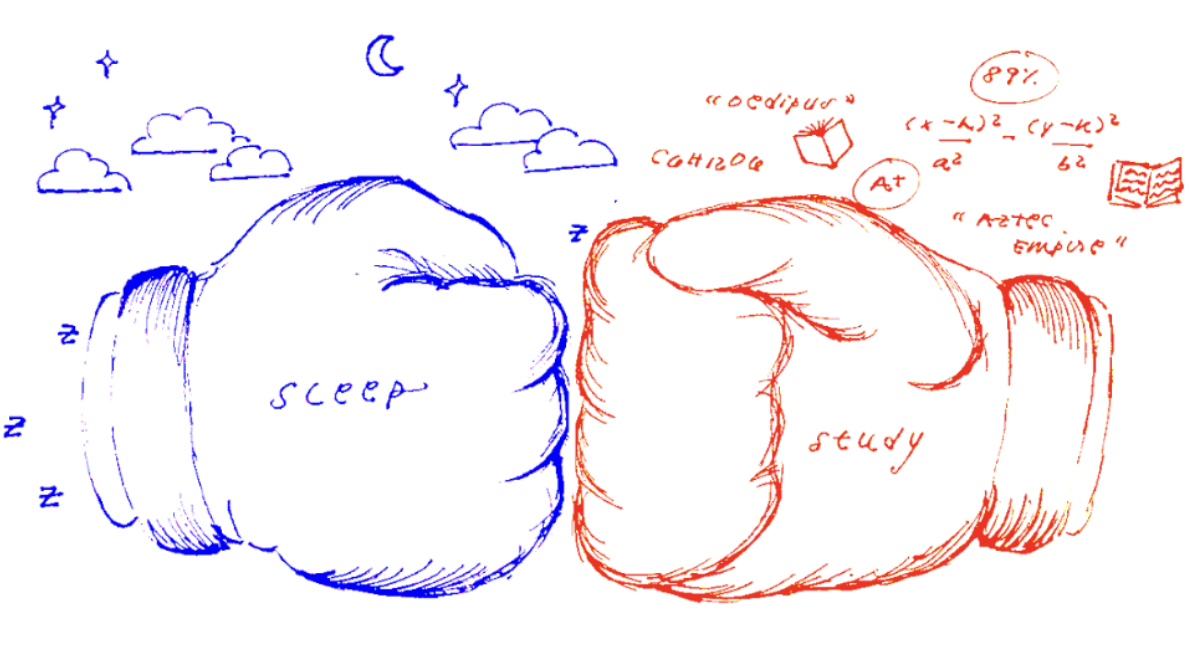“Dude, that smells nasty!”
In one episode of Fresh Off the Boat, the first ever U.S. sitcom focused on Asian Americans, we watch as Eddie Huang goes through the quintessential ethnic minority elementary school experience: getting ridiculed for his mom’s Chinese food. His camaraderie with his Caucasian pals in the school cafeteria ends abruptly when he opens his Tupperware, exposing the seafood noodles he’d packed for lunch; they immediately recoil. The next day, ashamed and outcasted, Eddie begs his mom to pack him “white people food.”
Personally, I couldn’t really relate. Even in elementary school, I can only remember being proud of my homemade food; there were too many fellow kids of color for cultural diversity to be ridiculed. Perhaps I can attribute my childhood experiences of diluted racism to the inherent diversity of my hometown, but I can also say for sure that Eddie’s experience is less common for Gen-Z Asian Americans than it was for millennials. In an internet-saturated generation, all it takes is a scroll down your For You Page to sample everyone’s culture.
As one NBC article, published in May 2023, explained, “The panic of opening an ethnic lunchbox in a crowded cafeteria is dead to [Gen-Z]. It has been traded in for videos of their moms’ recipes narrated by artificial intelligence. The teasing endured for expressive classical dances is in the rearview mirror. They’re now making money doing the same dances on the internet.” To find an Asian-American in your classroom or on TV is now a commonplace occurrence. I’ve seen Asian-American friends scoff at modern activism–why politicize a problem that’s not even here anymore?
But has racism really factored out of the Asian American consciousness? We go to school in a diverse community where our privilege somewhat isolates us; but does that mean the warped consciousness left behind by Asian American history can’t reach us anymore? Anti-Asian hate crimes surged during the pandemic, a symptom of America’s residual resentment towards its Asian immigrants. It lingers everywhere in the form of the model minority myth, a pervasive, stereotypical assertion that Asian Americans are a meek, robotic, yet financially successful group who should stop complaining about being marginalized. After all, they’re next in line to be white.
In her memoir Minor Feelings: An Asian American Reckoning, Cathy Park Hong discusses the origins and consequences of this myth. According to Hong, the model minority myth was an insidious strategy borne from American capitalism, with clear intent: to present the Asian-American as the meritocratic role model, and to justify prejudice against other minorities while silencing Asian-American protests. In reality, the myth unfairly conflates the vast array of Asian cultures–Burmese Americans, for instance, earn far less than Asian Americans overall–while invalidating Asian American trauma with false idealism. Thus are born what Hong terms “minor feelings”: feelings of shame clashing with systemic invalidation, producing cognitive dissonance. Minor Feelings is a wake-up call to its readers, to realize the grievances we’d been compelled to suppress.
When I first read Minor Feelings, I was wary of heeding Hong’s warnings–after all, I don’t belong to her generation. We’ve since graduated from millennial racism. But while millennial racism has died, minor feelings haven’t. In the aftermath of the Affirmative Action decision, for instance, Asian Americans, the scapegoats for the lawsuit, were suddenly placed at odds against other affected minorities. The overturning of AA was at once a setback to educational diversity, and a reinforcement of the model minority myth; and at the crux of this cognitive dissonance, an apparition of ancient immigrant dissonances, lies the Asian American consciousness. The narrative that Gen-Z has outgrown the symptoms of historical anti-Asian prejudice is faulty, insidious, and ultimately dangerous.








